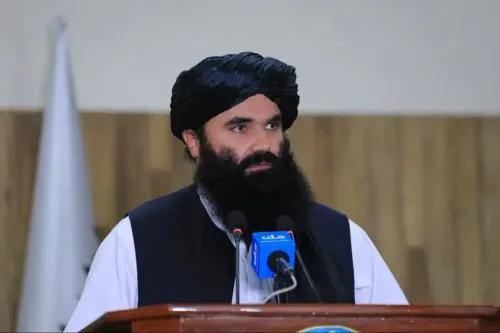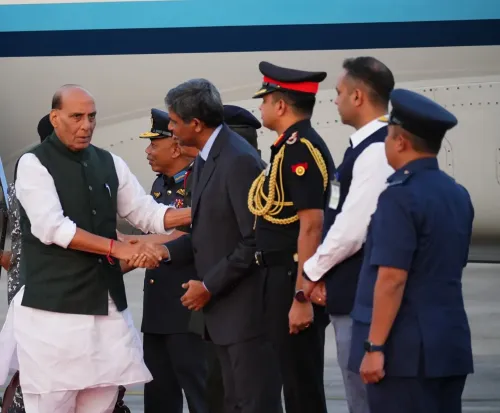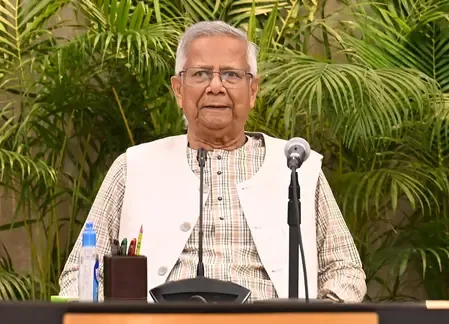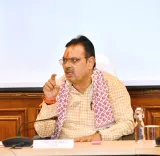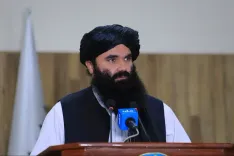Is the Proposed Budget by Yunus' Interim Government Truly Reflective of Public Opinion?
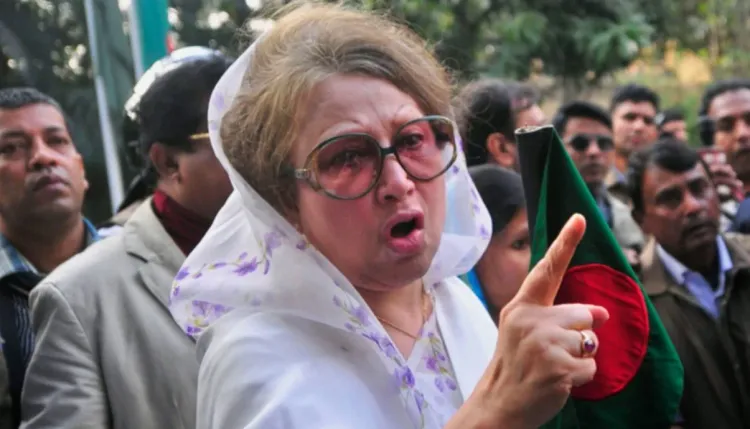
Synopsis
Key Takeaways
- BNP critiques budget for lack of inclusivity.
- Over 2.7 million people have fallen into poverty.
- Importance of public engagement in budget formulation.
- Call for national elections by December.
- Economic stagnation impacting employment and income levels.
Dhaka, June 4 (NationPress) The Bangladesh Nationalist Party (BNP) has openly condemned the budget proposal unveiled by the interim government headed by Muhammad Yunus for the fiscal year 2025-26, labeling it as "unilateral, ineffective, and non-participatory" due to its failure to reflect the perspectives of political entities and the general populace.
BNP Standing Committee member Amir Khosru Mahmud Chowdhury articulated during a press conference at the party's Gulshan office that, "The interim government could have engaged various segments of society for their input, including experts, civil society representatives, business leaders, and youth advocates."
He lamented that had this engagement occurred, the budget could have embodied a cohesive economic vision and resonated with the diverse voices of the nation. However, he asserted that this opportunity was squandered, resulting in a budget that is one-dimensional, non-inclusive, and conventional, lacking innovative perspectives.
Khosru emphasized that given the current political climate in Bangladesh, it is crucial for the interim government to foster dialogue before finalizing the budget, especially with an elected government set to take office in the 2025-26 fiscal year, as reported by Bangladeshi media outlet UNB.
He noted, "In the lead-up to a General Election, there are various approaches to budget approval. An interim government typically refrains from making substantial policy alterations or implementing significant tax changes."
The BNP leader criticized the budget proposals across multiple sectors, including the imposition of taxes on private universities, medical colleges, and schools, increased taxes on online businesses, a lack of incentives for regular investors in the capital market, and the continuation of unnecessary and inefficient development projects.
According to World Bank data, over 2.7 million individuals have fallen into poverty during the interim government's tenure, with 1.8 million being women. Real incomes have decreased as wage growth has not kept pace with inflation, Khosru pointed out.
He also indicated that rising poverty has strained consumer spending, leading to employment declines across various sectors, both formal and informal, attributed to stagnant domestic and foreign investment. Consequently, societal inequality is escalating, along with the number of impoverished individuals.
The BNP is urging the interim government to conduct national elections by December.
Salahuddin Ahmed, another Standing Committee member from the BNP, expressed on Tuesday that holding national elections before December is feasible, as necessary reforms can be achieved within a month with consensus.
The interim government led by Yunus is facing mounting pressure from various political factions, including the BNP, to facilitate elections by the end of the current year.

